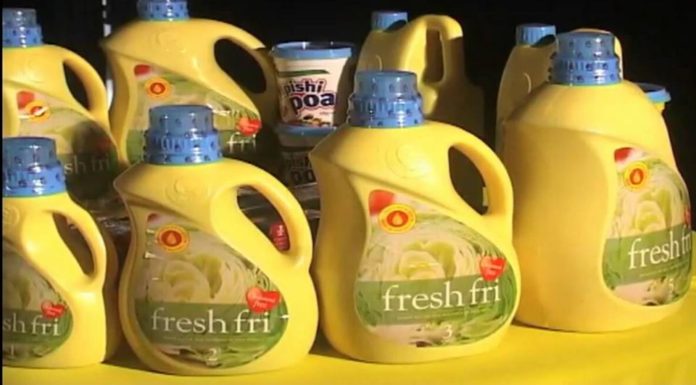Pwani Oil, the manufacturer of Freshfri, Salit and Fry Mate cooking oils, in Kenya has announced a temporary shutdown of its plant.
Pwani Oil Commercial Director Rajul Malde said the move is due to shortage of raw materials which it blamed on difficulties accessing dollars to pay suppliers on time. The consumer goods manufacturer said its bankers were only processing half of the dollar orders it requires to pay the suppliers of crude palm oil imports from Malaysia amid stiff global competition.
“Getting sufficient amount of dollars required to support the factory in terms of getting sufficient raw materials is not happening. We are not even running the plant right now because of lack of raw materials [crude palm oil]. We are competing for the same oil with the rest of the world and, therefore, prices are high. Added to that, we can’t pay on time so we don’t get priority in supply,” said Rajul Malde.
Foreign exchange market
Central Bank of Kenya Governor Patrick Njoroge however dismissed concerns by the Kenya Association of Manufacturers (KAM) that persistent dollar shortages were triggering the emergence of a parallel exchange rate where lenders buy and sell well above the printed official rate.
Dr Njoroge maintained the foreign exchange market transacts about $2 billion of the US currency every month, which he indicated was enough to meet demand from importers and companies for payments like dividends.
“At the moment, based on the inflows from banks, we are only able to source between $500,000 and $1 million a day against a requirement of $2- $2.5 million a day. So we are only getting half of what we need, sometimes even less than half,” Mr Malde said.
“Terms [of suppliers] are normally cash against documents. So when they ship a container out, they will send us copy of the documents and we need to pay to get those [original] documents to clear the cargo. Now that’s where the challenge is because if there isn’t enough dollars available, how do you pay and get the documents to clear?” he added.
The situation, he said, has been compounded by stiff global competition for crude palm oil, which has exacerbated after Indonesia tightened its export rules to prioritise domestic needs.
Indonesia accounts for about a third of the global crude palm oil exports, which make up 60 percent of world’s edible vegetable oil shipments — others being soybean, sunflower and rapeseed oil. That has left Malaysia as the main source of crude palm oil, the main raw material Pwani uses in manufacturing its cooking oil products like Fresh Fri and Salit.
“The situation can only improve if the dollar situation improves. And I am not seeing the dollar situation improving on its own without the central bank intervening and releasing some of the dollar reserves that they are holding to stablise the dollar demand in Kenya,” Mr Malde said.









[…] Credit: Source link […]
[…] farmersreviewafrica.com/pwani-oil-kenya-closes-plant/ […]
Comments are closed.